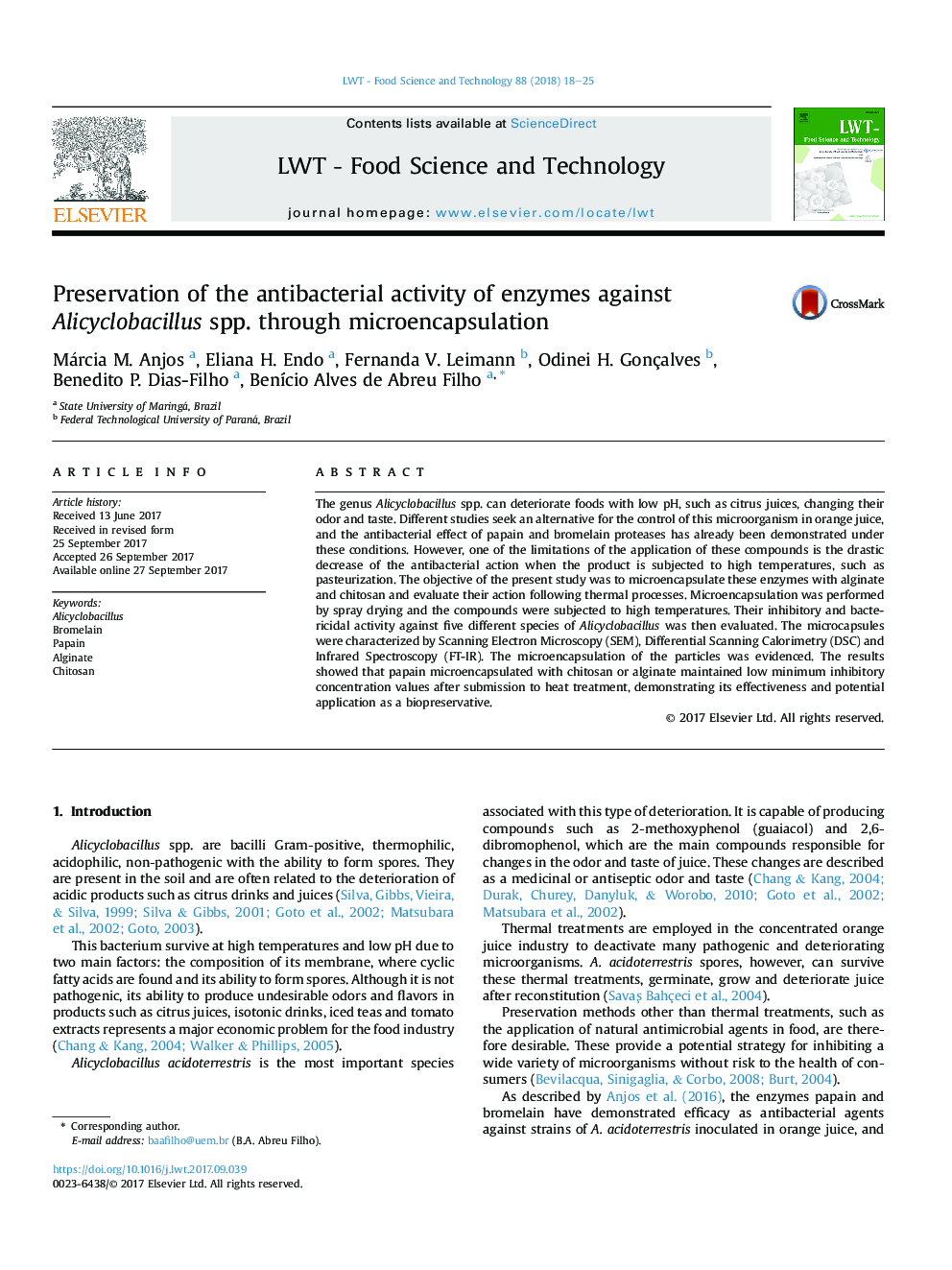| Article ID | Journal | Published Year | Pages | File Type |
|---|---|---|---|---|
| 5768349 | LWT - Food Science and Technology | 2018 | 8 Pages |
â¢Microencapsulation of papain and bromelain with polymers was performed.â¢The microcapsules showed antibacterial activity against Alicyclobacillus spp.â¢Microencapsulation of papain maintained antibacterial action after heat treatment.â¢Microencapsulated papain showed potential application as a bioconservative.
The genus Alicyclobacillus spp. can deteriorate foods with low pH, such as citrus juices, changing their odor and taste. Different studies seek an alternative for the control of this microorganism in orange juice, and the antibacterial effect of papain and bromelain proteases has already been demonstrated under these conditions. However, one of the limitations of the application of these compounds is the drastic decrease of the antibacterial action when the product is subjected to high temperatures, such as pasteurization. The objective of the present study was to microencapsulate these enzymes with alginate and chitosan and evaluate their action following thermal processes. Microencapsulation was performed by spray drying and the compounds were subjected to high temperatures. Their inhibitory and bactericidal activity against five different species of Alicyclobacillus was then evaluated. The microcapsules were characterized by Scanning Electron Microscopy (SEM), Differential Scanning Calorimetry (DSC) and Infrared Spectroscopy (FT-IR). The microencapsulation of the particles was evidenced. The results showed that papain microencapsulated with chitosan or alginate maintained low minimum inhibitory concentration values after submission to heat treatment, demonstrating its effectiveness and potential application as a biopreservative.
